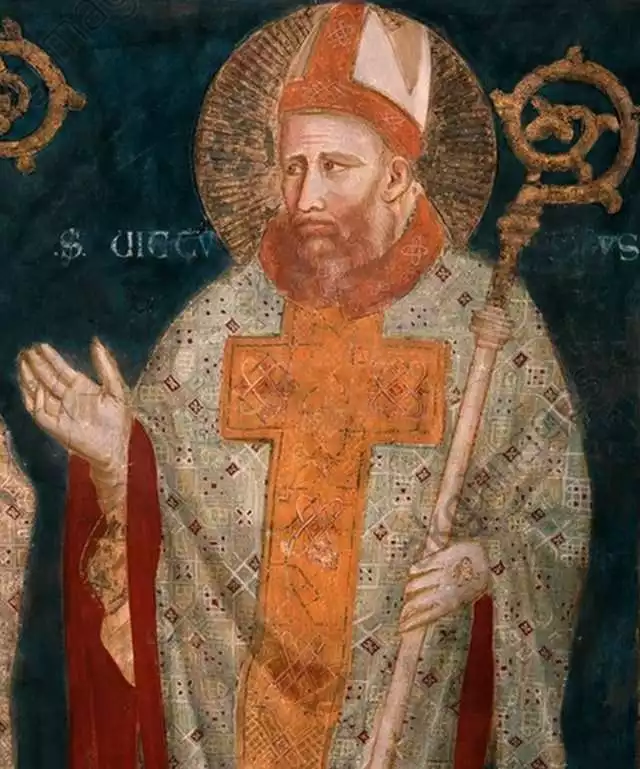
Saint Victorinus, a pivotal figure in early Christian theology, lived during the tumultuous era of the late 3rd and early 4th centuries. His contributions to Christian thought, particularly in the realm of eschatology, have left a lasting impact on the Church. Although the exact dates of his birth and death remain elusive, Saint Victorinus is believed to have died around 303 AD, during the Great Persecution under Diocletian. His martyrdom, coupled with his theological insights, earned him a revered status as a saint in the Christian tradition.
Life and Background of Saint Victorinus
Saint Victorinus emerged as a prominent theologian during a period of significant transformation and challenge for the early Christian Church. Born into a pagan family, his journey to Christianity is a testament to the spiritual searching prevalent in the Roman Empire during this era. His conversion to Christianity marked a pivotal turning point in his life, leading him to dedicate himself to the study and exposition of Christian doctrine.
Educated in the renowned schools of rhetoric, Saint Victorinus was well-versed in the philosophical and literary traditions of his time. This background provided him with the tools to engage deeply with Christian theology, blending his classical education with his newfound faith. His ability to articulate complex theological concepts in a manner accessible to a broader audience distinguished him from many of his contemporaries.
Saint Victorinus’ tenure as a teacher in Rome garnered him significant acclaim. His eloquence and profound understanding of Scripture attracted a wide array of students, many of whom would go on to play influential roles in the Christian Church. His teaching style, characterized by clarity and depth, made complex theological concepts more comprehensible to the lay Christian community.
Theological Contributions of Saint Victorinus
Saint Victorinus’ most notable contribution to Christian theology lies in his interpretation of the Book of Revelation. His exegesis of this apocalyptic text is among the earliest known commentaries on Revelation, showcasing his pioneering role in biblical scholarship. Saint Victorinus approached the text with a unique perspective, combining his deep understanding of Jewish apocalyptic literature with Christian eschatological beliefs.
In his commentary, Saint Victorinus presented a view of Revelation that emphasized both the historical and spiritual dimensions of the text. He interpreted the book as a prophetic vision of the Church’s ultimate triumph over evil, a message that resonated powerfully with Christians facing persecution under Roman rule. His interpretations provided a source of hope and strength, affirming the belief in a divine plan guiding the course of history.
Additionally, Saint Victorinus made significant contributions to the development of Christian liturgy. His works on the subject reveal a deep understanding of the symbolic and spiritual significance of liturgical practices. He was instrumental in shaping the early Christian liturgical tradition, emphasizing the importance of communal worship and the sacraments in the life of the Church.
Saint Victorinus’ theological works, while deeply rooted in the intellectual traditions of his time, were marked by an unwavering commitment to the core tenets of Christian faith. His writings reflect a balance between intellectual rigor and spiritual devotion, making him a vital figure in the development of early Christian theology.
Persecution and Martyrdom
Saint Victorinus faced severe persecution under Emperor Diocletian, a period marked by intense hostility towards Christians. Despite the risks, he remained steadfast in his faith and continued his theological work, providing spiritual guidance to the Christian community. His courage during these trying times solidified his reputation as a dedicated defender of the Christian faith. Ultimately, Saint Victorinus was martyred, sacrificing his life for his beliefs. His martyrdom served as a powerful testament to his unwavering devotion and left a profound impact on the early Church.
Legacy and Influence
The legacy of Saint Victorinus extends far beyond his lifetime. His theological writings and teachings have been influential in shaping Christian thought, particularly in the fields of eschatology and biblical interpretation. His commentary on Revelation continues to be studied for its insights into early Christian beliefs about the end times. Saint Victorinus’ life and work serve as enduring examples of intellectual rigor combined with deep spiritual commitment, inspiring generations of Christians.
Saint Victorinus’ contributions to early Christian theology, his steadfastness in the face of persecution, and his ultimate martyrdom highlight his significance as a theologian and martyr. His works continue to resonate within the Christian tradition, reflecting the enduring impact of his intellectual and spiritual legacy.
Feast Day: November 3
Patron Saint of: Theologians and Scholars
References
- Christian Classics Ethereal Library. Saint Victorinus of Pettau (Accessed December 21, 2023).
- Clark, Elizabeth A. Reading the Apostolic Fathers. Wiley-Blackwell, 2011.
- Jurgens, William A. A Handbook of Patrology. JesusMaryJoseph.ca (Accessed December 21, 2023).
- Saint Victorinus of Pettau. American Needs Fatima (Accessed December 21, 2023).
